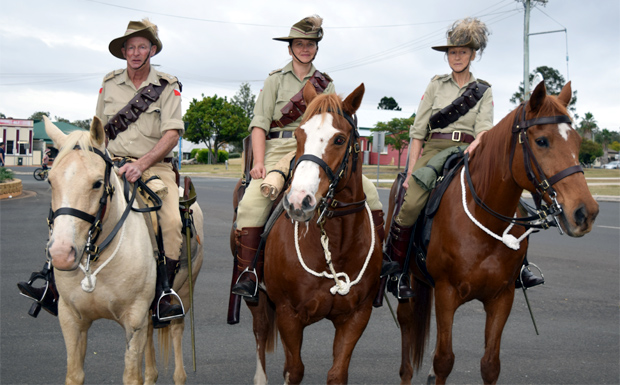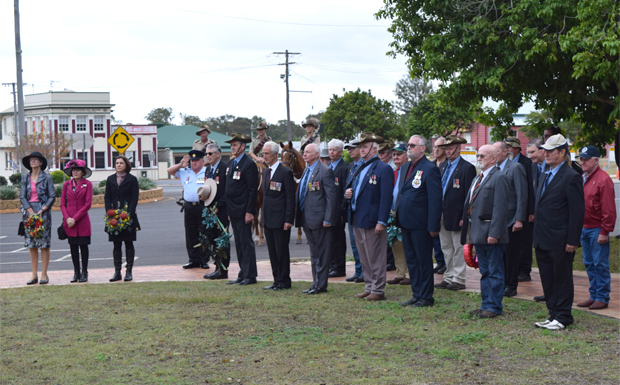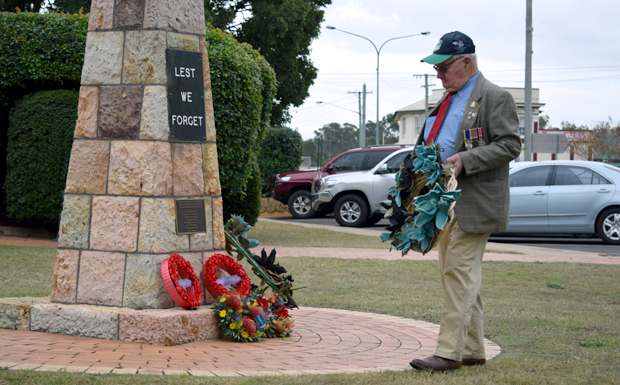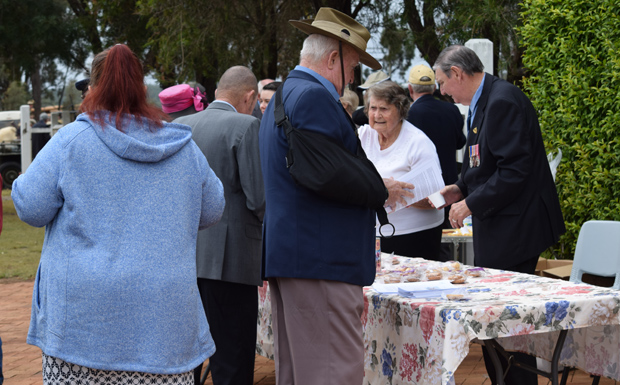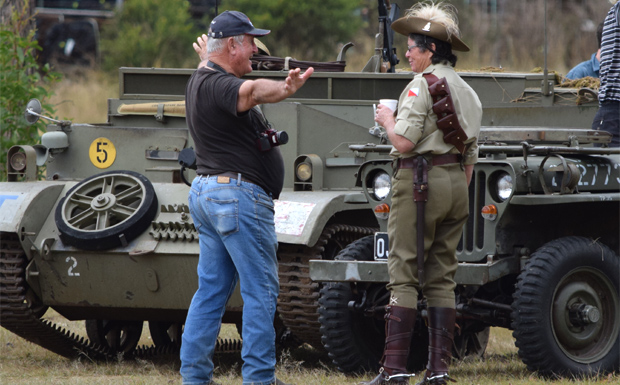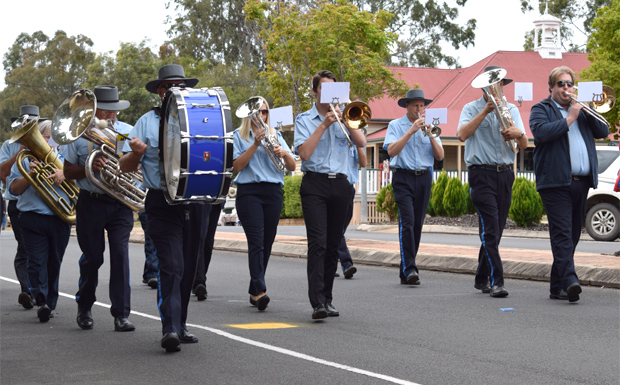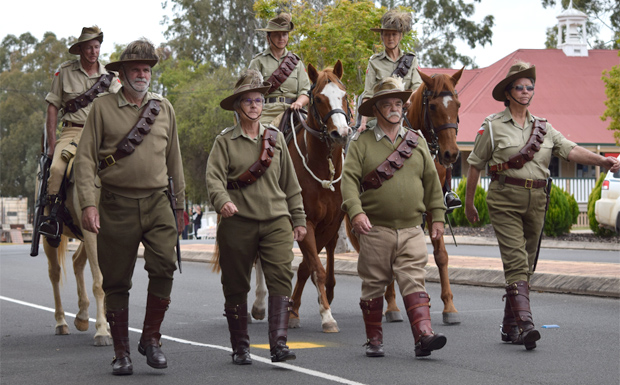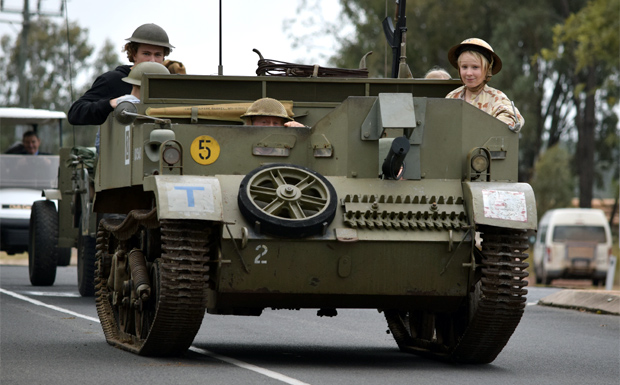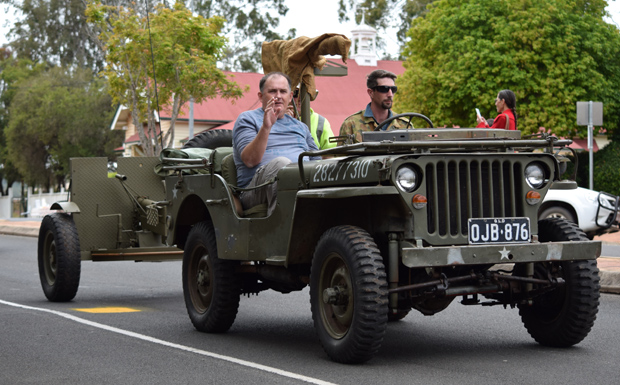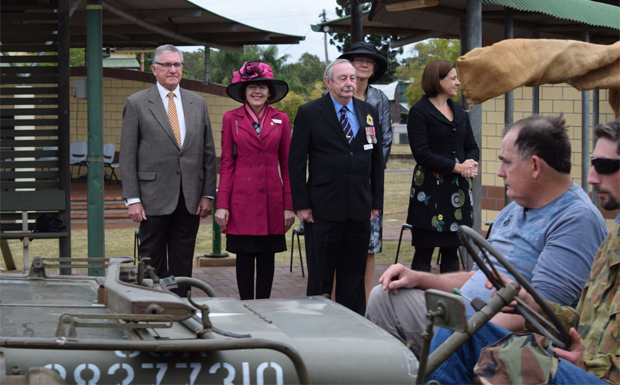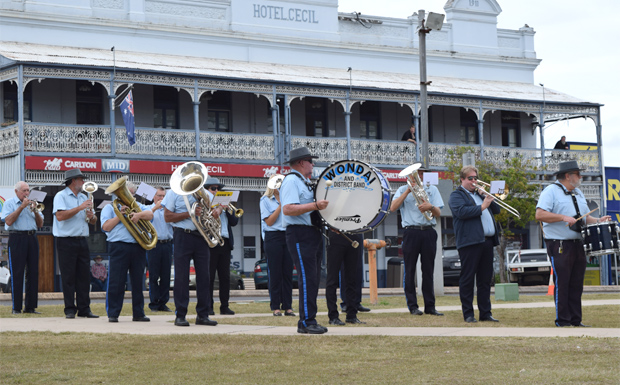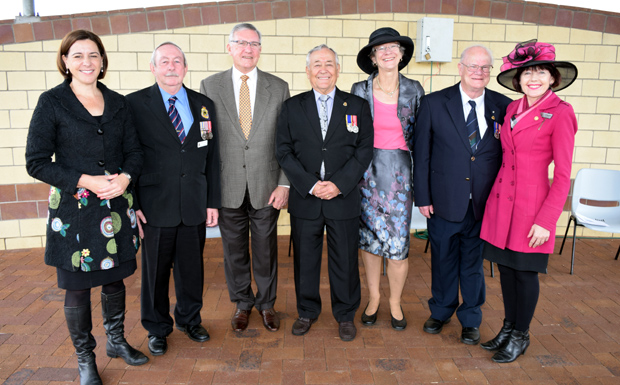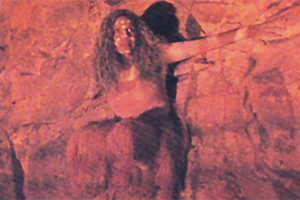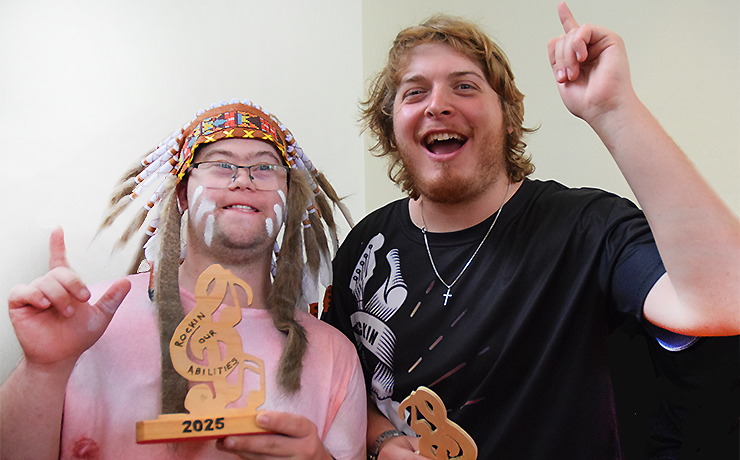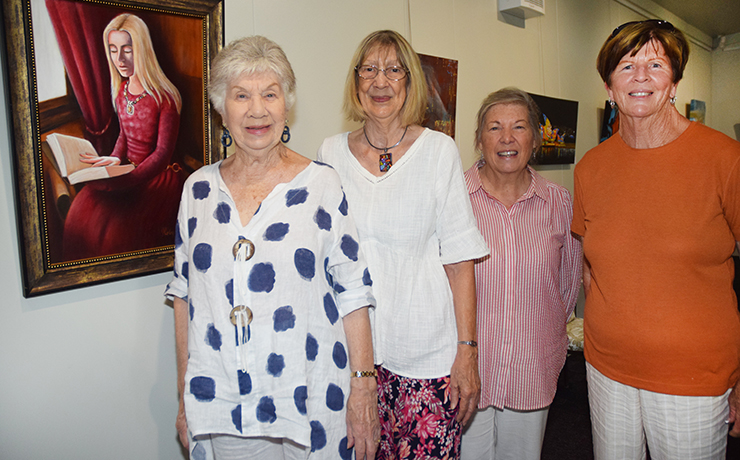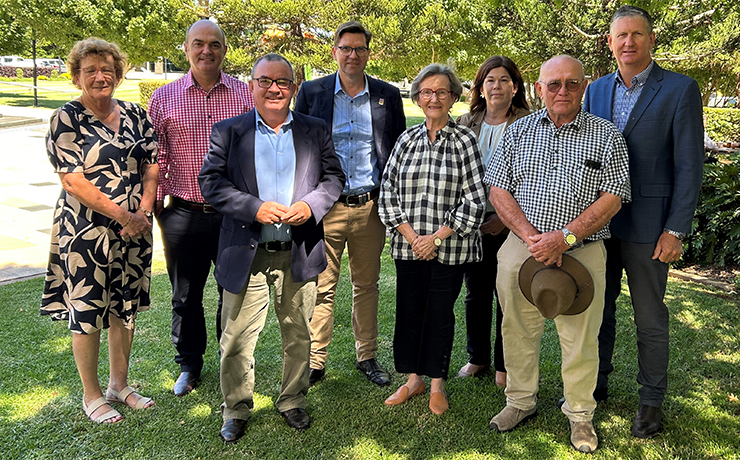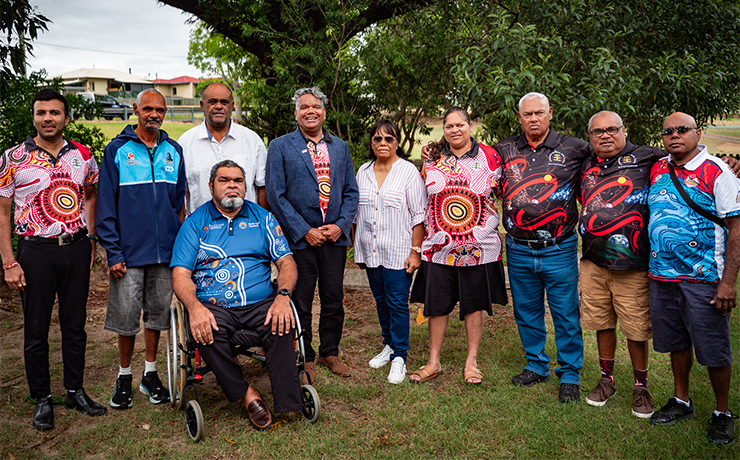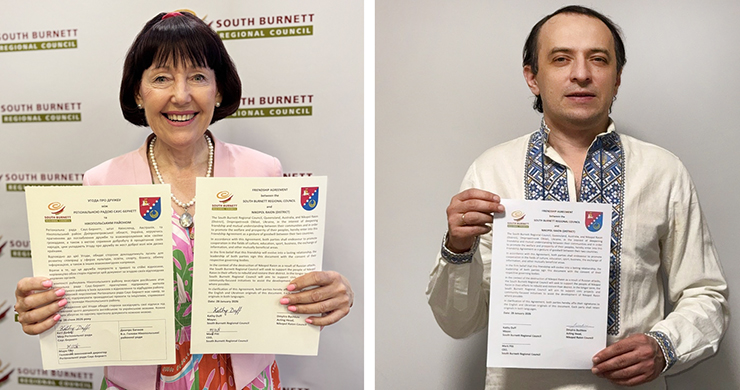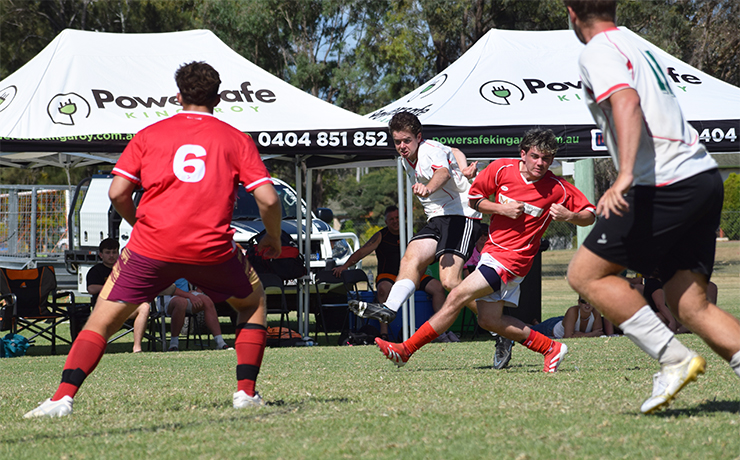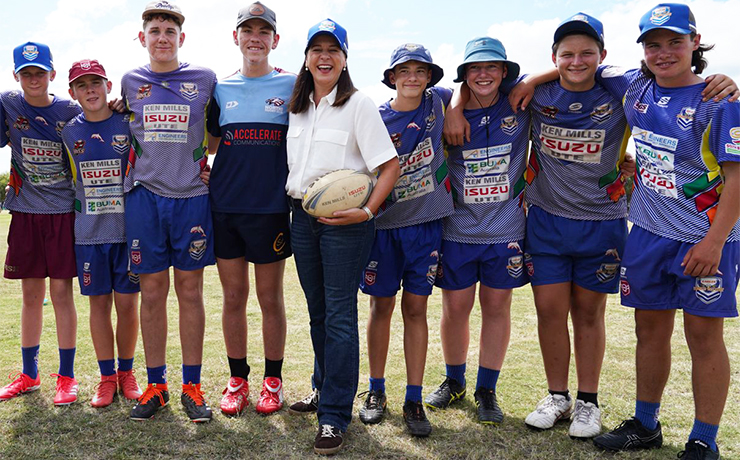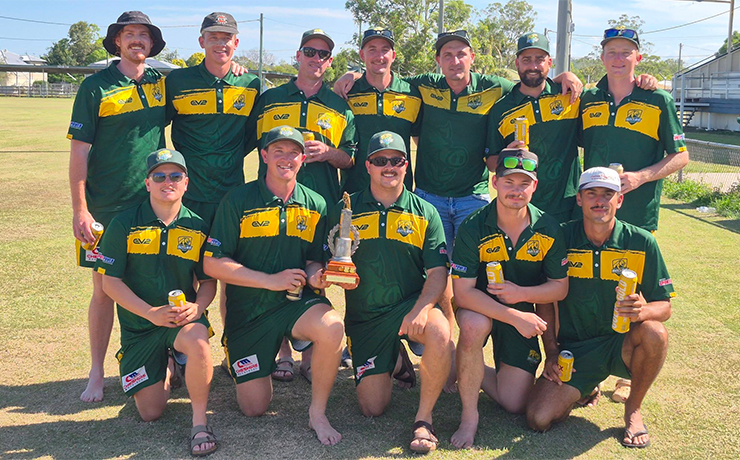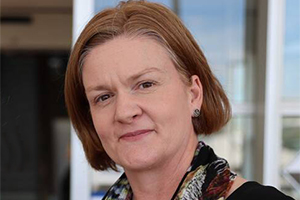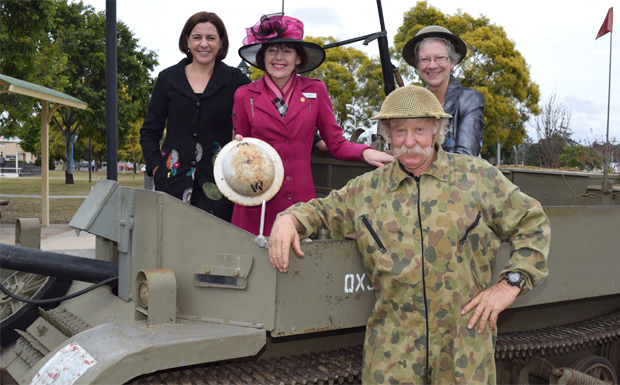
July 3, 2018
Age and illness meant numbers were slightly down on normal at this year’s Reserve Forces Day commemoration on Sunday … but enthusiasm for the event remained as strong as ever, with guests coming from all over Queensland.
This year, former reservists came from as far afield as Innisfail, Rockhampton and Quilpie to take part in Wondai’s annual Reserve Forces Day, with many spending the weekend camping out at the Wondai Showgrounds.
The annual get-together honours the two million Australian men and women who have served in the Army, Navy and Air Force Reserves since 1948, as well as the many thousands who have served in the CMF and other volunteer forces over the years.
Reserve Forces Day begin in 1998 when 4000 current and 18,000 former members of the Reserve Forces marched in 12 cities around Australia.
Wondai began holding its own Reserve Forces Day event in 2006, and this year it was one of 16 locations around Australia which marked the day, as well as one of three in Queensland alongside Brisbane and Ipswich.
The theme of this year’s commemorations at many locations was based around the centenary of the battles of Villers Bretonneux, Le Hamel and Amiens, which laid the pathway to the signing of the Armistice.
But Wondai has traditionally chosen to honour a different wing of the armed forces each year, and this year it was the RAAF’s turn.
Retired RAAF Sergeant David Scrimgeour, who is also secretary of Wondai RSL, was a special guest at this year’s commemorations, alongside Member for Nanango Deb Frecklington, South Burnett Mayor Keith Campbell, Deputy Mayor Kathy Duff and Cr Ros Heit.
As usual, the day began with a wreath-laying at Wondai’s War Memorial at 10:00am, followed by a community morning tea outside Wondai Post Office.
After this, participants from the 49th and 25th Battalions paraded along Mackenzie Street to Coronation Park, where the day’s special guests took the salute.
The 25th Battalion served at Milne Bay in 1942, and the 49th Battalion served on Papua New Guinea’s north coast in 1944.
At the commemoration service that followed the parade, compere Wally Knight read out letters from Governor-General Sir Peter Cosgrove and Prime Minister Malcolm Turnbull, then asked guests to pause and remember former Wondai Shire Mayor Percy Iszlaub in their thoughts.
“Percy was a long-standing supporter of Reserve Forces Day,” Wally said.
“His presence was always welcome, and his absence this year is greatly missed.”
Special guest David Scrimgeour then delivered the address, which outlined the history of the RAAF.
Australia’s air service had its beginnings at an Imperial Conference held in London in 1911 where it was resolved that aviation should be developed within the armed forces of the British Empire, David told the audience.
Australia was the only country in the Empire to act on this, establishing a Central Flying School at Victoria’s Point Cook in 1913 which saw the first flight take place in March 1914.
The new service – which at that time was a wing of the army – continued to operate as the Australian Flying Corps and served in Iraq, Egypt, Palestine and the Western Front during WWI, before being disbanded in 1919.
That same year, Major General J. G. Legge recommended a future Australian air force should mainly be composed of citizens forces with a proportion of permanent troops.
In March 1921, the Australian Air Force was established as an independent armed force, and three months later King George V approved adding “Royal” to its name, making the RAAF the 2nd Royal Arm in the British Commonwealth and the second oldest air force in the world.
In the years leading up to WWII, several autonomous Citizens Air Force units were raised in the eastern state capitals and in Perth, providing the bulk of RAAF training.
And at the outbreak of war, around two-thirds of the RAAF were reservists who had to be become members of the permanent air force due to a Constitutional restriction which prevented non-military personnel serving outside Australian territory.
The RAAF expanded rapidly during WWII and at its height become the fourth largest air force in the world, with 53 squadrons in the Pacific and a further 17 in Europe.
Since that time the RAAF has served in the Malayan Emergency (1948-60), the Korean War (1950-53), the Vietnam War (1955-75), the Indonesia-Malaysia Confrontation (1963-66), Afghanistan (2001-Present) and Iraq (2003-2009).
They have also assisted in humanitarian missions to Bouganville, Cambodia, East Timor, Indonesia, Pakistan, Papua New Guinea, Rwanda, the Solomon Islands and Sudan.
After Mr Scrimgeour’s address guests retired to the Wondai Diggers Club for refreshments.
Some also paused to admire a restored WWII jeep and bren gun carrier brought along to this year’s Reserve Forces Day parade by owner John Kratzmann.
John, has restored many WWII vehicles, is a regular fixture at most Reserve Forces Day parades.
John said he had the miss the past two years’ commemorations due to conflicting engagements, but was very happy to be able to attend again this year.
Related articles:
- Navy Comes To Honour Reservists (2017)
- Reserves Honoured In Wondai (2016)
- Wondai Marks A Milestone (2015)
- Reserves Troop Their Colours (2014)
- Reserves Turn Out In Force (2013)
- Wondai Troops Its Colours (2012)
